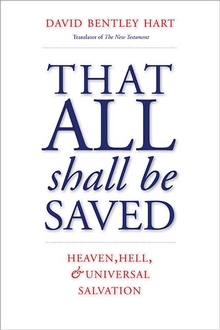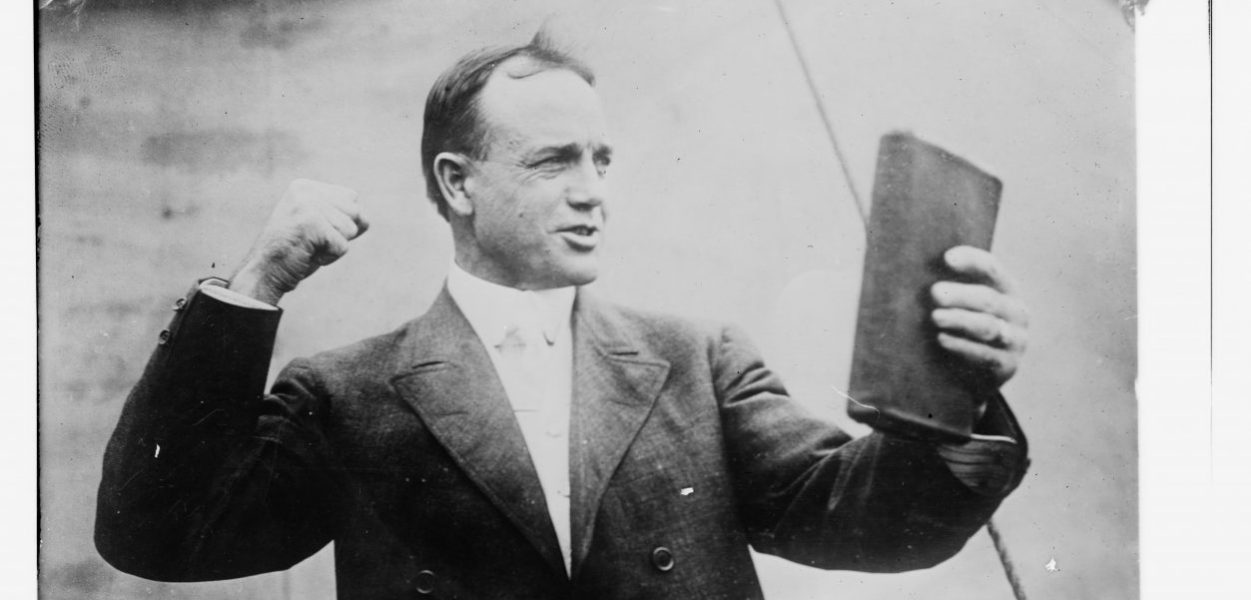The Etiquette of Hell
David Bentley Hart—
There is, it seems, a very strict etiquette of hell. I don’t mean the manners and mores proper to the establishment itself; I expect those are pretty dreadful, if you’re the fastidious sort. Rather, I mean a set of unwritten rules one is supposed to observe when speaking about hell to Christians in a public setting. And these, as far as I can tell, have become ever more restrictive as the centuries have worn on. At one time, for instance, it was still considered to be in good taste, or at least not impolite, to talk about hell in sermons; for the most part today, except in fundamentalist circles (which are by definition somewhat déclassé), most homilists would consider it crass. This is especially true at funerals, for obvious reasons, but no less true at baptisms. For many Christians, hell is the dark family secret, the mad uncle confined overhead whom everyone knows not to mention. And yet, curiously enough, worse than calling the whole dreadful matter to mind is calling it into doubt. While it may be an indiscretion to talk about that poor mad uncle gibbering away in the shadows of the attic, many see it as something close to an abomination to suggest that maybe he isn’t really there at all, and that his very existence might be just a piece of family lore, originally intended to scare the children into good behavior.
Anyone, that is to say, so tactless as to raise serious questions about the logical and moral coherence of the concept of a state of perpetual conscious torment imposed upon rational creatures by a God of infinite love and justice, or about its scriptural or historical authenticity, risks the sort of censure that can scour one’s social calendar clean. But, of course, it’s nearly impossible never to notice now and again that, soberly considered, the idea of an eternal hell is easily among the most horrifying that the religious imagination has ever entertained—one that, taken to heart, can make existence itself seem like a cruel burden visited on us by an unutterably merciless omnipotence. And, having noticed this, one sometimes has to remark upon it. Very well, then—if one must. But at that point the rules of deportment become especially inflexible. No matter how distasteful one may personally find the concept that divine justice reveals itself in the eternal torture of the reprobate, one is required to hide that distaste, and even to effect doubt about one’s doubts, and to become almost theatrically deferential toward the concept (as a venerable feature of sacred tradition), and to express oneself humbly, hesitantly, demurely, apologetically—even contritely. To violate this etiquette is to invite a positively ferocious response. At least, such has been my experience.
I suspect, however, that all of this has very little to do with genuine good manners and everything to do with uneasy consciences. Not that I can prove it, but I have become convinced in recent years that, just below the surface of many believers’ seemingly equable and settled convictions regarding the reality of an eternal hell, there is a volatile, positively volcanic ferment of doubt and despair seething away that, if not scrupulously repressed, just might erupt into the open and reduce their faith to ashes. Somewhere deep down, even the most convinced defender of the conventional view of hell realizes that there is something morally unintelligible in it, and that this unintelligibility, if frankly confronted, menaces the entire structure of belief. That’s why, I suspect, the understanding of hell that Christian culture openly espouses has tended to grow gradually but constantly more emollient over the centuries. At one time, after all, in very late antiquity, Western Christians could speak with firm if dour certitude of a place of real physical and mental agony to which even babies would be sent forever and ever if they were so thoughtless as to die unbaptized. Today only a tiny remnant of believers still finds that notion tolerable. By the high Middle Ages, it had already been displaced in many minds by the idea of a limbo of infants, a place where unformed souls, though forever denied the vision of God, would nonetheless enjoy a certain natural contentment.
Even in regard to adult sinners who die unrepentant, Christians have grown increasingly uncomfortable with the thought that God himself might actively will their eternal suffering. Reflective believers have more and more over the years come to adopt the notion that, while hell may be eternal, its doors are locked from the inside (to use C.S. Lewis’s imagery), and that the damned freely choose their damnation, out of hatred of divine love, while God, out of regard for the dignity of human freedom, leaves them reluctantly to the hell they so jealously crave. Needless to say, in this picture of things the fire and brimstone have been quietly replaced by various states of existential disquiet and jealously guarded self-delusion. That makes the whole issue considerably less troubling, of course, and is psychologically plausible up to a certain point. Past that point, admittedly, there’s no way of reconciling the classical and Christian—or, for that matter, merely logical—concept of rational freedom with such a view. But that’s an argument for another time. What I think most worth noting here is that the need that so many Christians feel to absolve God of any direct responsibility in the imposition of hell’s torments—omnipotent and omniscient though he be—is more than enough proof that they know that something is deeply amiss in the doctrine itself.
In any event, it’s well past time that the etiquette of hell be put aside. These rules of good conduct are actually deeply perverse. They’re simply conventions for sparing Christians the unpleasant task of confronting the real implications of the things they say they believe.
After all, why should anyone feel the need to apologize for denouncing an idea whose principal use down the centuries has arguably been the psychological abuse and terrorization of children, and the emotional control of all believers? Who, after all, is saying something more objectively atrocious? The person who claims that every newborn infant is justly doomed by a good God to eternal dereliction, and that God imposes or permits a state of eternal agony for rational beings as part of the mystery of his love or sovereignty? Or the one who claims that such ideas are cruel and depraved? Which of those two really has better cause to be ashamed of his or her words, or at least hesitant, uncertain, and perhaps even a little contrite in uttering them? And which has a better right to moral indignation at what the other has said?
Well, the question more or less answers itself. What is instructive is that it even needs to be posed.
David Bentley Hart is an Eastern Orthodox scholar of religion, and a philosopher, writer, and cultural commentator. His books include The Experience of God and The New Testament.
Further Reading:



























